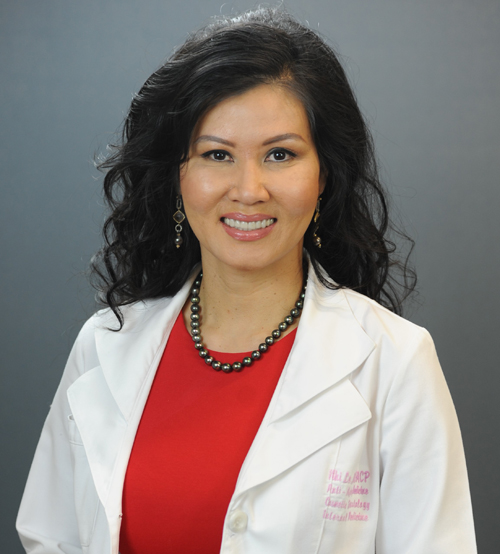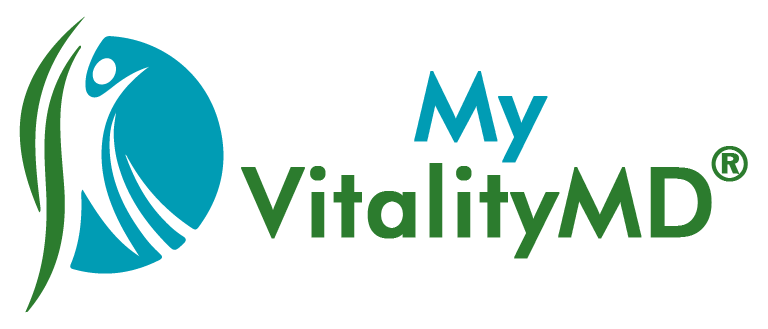Hormone & Thyroid Testing

Nhi Le, M.D. FAARM, ABAARM
Internal Medicine - Board Certified
Cosmetic Dermatology
Functional & Regenerative Medicine - Board Certified

Hormone & Thyroid Testing in Victoria, TX
Thyroid hormones directly regulate every cell in our body as the most basic functions like metabolism, emotions, and thinking. We also test several proteins that affect thyroid function as well as antibodies to thyroid which can detect autoimmunity (when the immune system attacks healthy tissue) and your levels of cortisol, the stress hormone.
Hormonal Balance
SpectraCell Laboratories offers comprehensive male and female hormone panels that reveal the overall state of hormonal balance in a patient. Like nutrients, hormones influence all aspects of health and disease – mood, sleep, metabolism, immunity, heart health, and appearance. An imbalance of one hormone can initiate a cascade of events that alters other hormones, so a comprehensive look at hormone status is key.
Hormones 101
Hormones are chemical messengers that are secreted directly into the blood, which carries them to organs and tissues of the body to exert their functions. There are many types of hormones that act on different aspects of bodily functions and processes.
Clinical Applications of Hormone Imbalance:
- Fatigue & energy levels
- Cardiovascular health (blood pressure, clotting, lipids)
- Neurology (migraines, sleep, pain)
- Mental health (depression, anxiety, cognitive function)
- Immunity (infections, autoimmune disease)
- Metabolism (blood sugar regulation, tissue repair)
- Bone density (osteoporosis)
- Physical appearance (skin, muscles, hair)
SpectraCell’s Hormone Panels Include the following:
Sex (Steroid) Hormones
- Dehydroepiandrosterone sulfate (DHEAS) – the most abundant sex hormone in the body, DHEAS (the sulfated, or bioavailable form of DHEA), is produced by the adrenal glands is the precursor hormone to testosterone and estrogens. DHEAS enhances immunity, reduces autoimmunity, helps prevent cancer, and improves insulin sensitivity, bone health, and cognitive function.P, E
- Androstenedione – precursor hormone to both testosterone and estrogens; occurs in equilibrium with testosterone so an increase in one also increases the other.P
- Testosterone – clinically associated with increased muscle mass, libido, bone health and a general sense of well being.E
- Estradiol (E2) – the strongest estrogen; protects blood vessels, increased high-density lipoprotein-cholesterol (HDL), prevents bone loss, helps form collagen which benefits the appearance of the skin, improves cognitive function and increases the immune response. However, estradiol also exerts a strong proliferative effect on hormone-sensitive tissues like the breast, uterus, and ovary so it must be properly balanced with progesterone and other estrogens to prevent the clinical manifestation of estrogen dominance and related cancers.E
- Estrone (E1) – This estrogen has very strong tissue proliferative effects and may be linked to estrogen dominant conditions like fibrocystic breasts, endometriosis, and uterine fibroids. It will create either dangerous or beneficial metabolites, depending on a person’s nutritional status.
- Estriol, unconjugated (E3) – weaker estrogen; protective against cancer as it opposes the proliferative effects on the uterus, breast, and ovary from the stronger estrogens; particularly high during pregnancy.E
- Progesterone – selectively balances the effects of estrogen in hormonally sensitive tissue (breast, uterine) as well as in the brain and skin. Progesterone decreases the immune response, promotes bone formation, protects the brain and tends to have a calming effect on mood. It is also a precursor hormone for other sex hormones as well as cortisol and interacts with hormones to regulate metabolism.P, EP – Precursor hormone – typically converted to other hormones
E – Endpoint hormone – acts directly on tissues for physiologic effects
R – Regulating hormone – initiates the production or suppression of other hormones
Regulatory (Peptide) Hormones
- Follicle-stimulating hormone (FSH) – stimulates the production of estrogens; a marker of ovarian function in women and initiates sperm production in men.
- Luteinizing hormone (LH) – contributes to reproductive function in both men and women; responsible for ovulation in women and sperm production in men; works synergistically with FSH and largely affected by prolactin levels.
- Prolactin (PRL) – an inhibitory hormone that reduces the action of several other hormones; most known for its ability to stimulate milk production in lactating women but it also regulates calcium metabolism and plays a role in the synthesis of nerve cells and prostaglandins as well, in both men and women.
- Sex hormone-binding globulin (SHBG) – produced in the liver and regulated by other hormones, SHGB is a protein that binds estrogens and testosterone in the bloodstream so they are biologically inactive.
THYROID HORMONES
- Free T3 (Free Triiodothyronine) – the more potent and biologically active thyroid hormone, T3 regulates growth and metabolism throughout the whole body.
- Free T4 (Free Thyroxine) – considered a precursor hormone, T4 is converted to T3 as required by cells throughout the body; levels of T4 are generally much higher than T3.
- Total T4 (Total Thyroxine) – Most T4 in the blood is bound to carrier proteins which make it biologically inactive. Total T4 includes unbound (free) T4 plus T4 that is bound to carrier proteins in the blood.
- rT3 – Reverse T3 (Reverse Triiodothyronine) – As the name implies, Reverse T3 opposes the biological action of T3. It slows metabolism and renders T3 in the body biologically inactive. The rate of rT3 production relative to T3 will increase in times of stress (high cortisol) and in the presence of nutrient deficiencies, inflammation or certain medications.
- Thyroid Stimulating Hormone (TSH) – produced by the pituitary gland, TSH tells the thyroid gland to increase or decrease the production of T4 or conversion to T3 depending on the amounts circulating in the bloodstream via an efficient feedback system.
- Anti-TG (Antibodies to Thyroglobulin) – a precursor to T4. If Anti-TG are present in significant amounts, this suggests an abnormal immune response against your own body, also called autoimmunity.
- Anti-TPO (Antibodies to Thyroperoxidase) – is an enzyme that initiates the synthesis of T4. Antibodies to TPO indicate autoimmunity where the body is attacking normal proteins in the blood (in this case, TPO). People with anti-TPO have a higher chance of developing hypothyroidism than those who do not have antibodies to TPO.
- Tg (Thyroglobulin) – The main function of Tg is to store iodine, which is a necessary nutrient for the production of thyroid hormones T3 and T4. This test is particularly useful when monitored over time versus a single measurement and can sometimes be a useful tumor marker in patients with previous thyroid cancer.
- TBG (Thyroid Binding Globulin) – is a carrier protein for thyroid hormones so its role is to transport T4 and T3 through the bloodstream. The thyroid gland adjusts to changing levels of TBG in order to keep free T4 constant and it is particularly useful when thyroid (T4) levels do not necessarily correlate with clinical symptoms. TBG levels are largely affected by other hormones and many prescription drugs and is useful in diagnosing the reason behind abnormal thyroid hormone levels.
